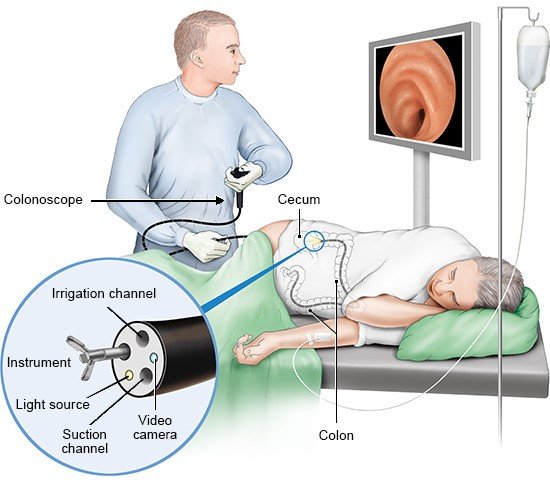A colonoscopy is a medical procedure used to examine the inner lining of the large intestine, also known as the colon. It involves the use of a thin, flexible tube equipped with a small camera to inspect the colon and rectum for abnormalities visually. Typically performed by a gastroenterologist, the test helps identify potential issues that may require further attention. While many regard colonoscopies as preventive, they are also used to investigate symptoms and monitor ongoing conditions. Here’s information on the key reasons you may need to schedule a colonoscopy:
Routine Screenings
Routine screening is one of the most common reasons for getting a colonoscopy. Health professionals often recommend it as part of a preventive care routine, particularly for individuals over the age of 50. Regular testing can help detect early signs of potential problems before they develop into more serious issues.
This type of screening is particularly necessary because symptoms for certain intestinal conditions often remain unnoticed until they reach an advanced stage. Even if you feel completely healthy, a colonoscopy could uncover hidden issues that would otherwise go undetected. Small growths called polyps are often found during routine colonoscopies. Though not all polyps are dangerous, some can evolve into more concerning conditions over time. Early identification allows doctors to remove these polyps and reduce future risks.
Abnormal Intestinal Symptoms
While colon conditions don’t always have symptoms, a colonoscopy is a valuable diagnostic tool for investigating unexplained intestinal symptoms when they do occur. These symptoms may indicate inflammation, infection, or structural abnormalities in the colon that warrant closer examination. Some common intestinal symptoms that may require medical care are:
- Persistent Changes in Bowel Habits
- Blood in the Stool
- Prolonged Abdominal Pain
- unexplained weight loss
If you experience ongoing diarrhea or constipation without an obvious cause, a colonoscopy can help identify the underlying issue. Recurring bouts of abdominal discomfort or cramping may be connected to conditions that are not visible on standard imaging tests. By providing a direct and detailed view of the intestinal lining, this procedure helps specialists pinpoint the source of your symptoms and plan an appropriate course of action.
Polyp Inspections
Polyps are abnormal growths on the inner wall of the colon or rectum, and they can vary significantly in size, shape, and risk level. While many polyps are benign, others may be precancerous or cancerous, necessitating removal during the exam. Having periodic colonoscopies helps detect these hidden growths and enables doctors to address them proactively.
The ability to find and remove polyps during the same procedure makes this endoscopic procedure both diagnostic and therapeutic. Regular colonoscopies enable periodic monitoring to detect new growths early. Removing polyps at an early stage is a straightforward process during this procedure, reducing the chances of more serious complications later.
Schedule a Colonoscopy Today
A colonoscopy is a diagnostic exam that helps many people maintain their overall health effectively. Routine screening, symptom investigation, and polyp inspection treatment plans help catch potential problems earlier. Speak with your healthcare provider about whether it’s the right time for this preventive measure. Schedule an appoinment today.

